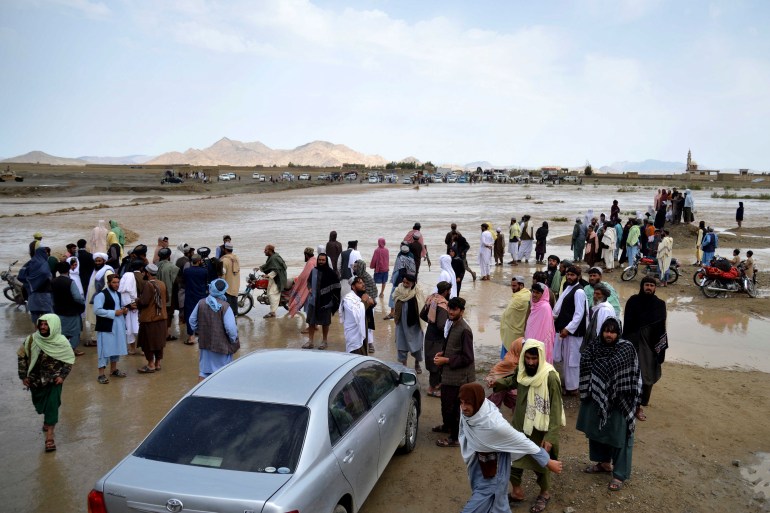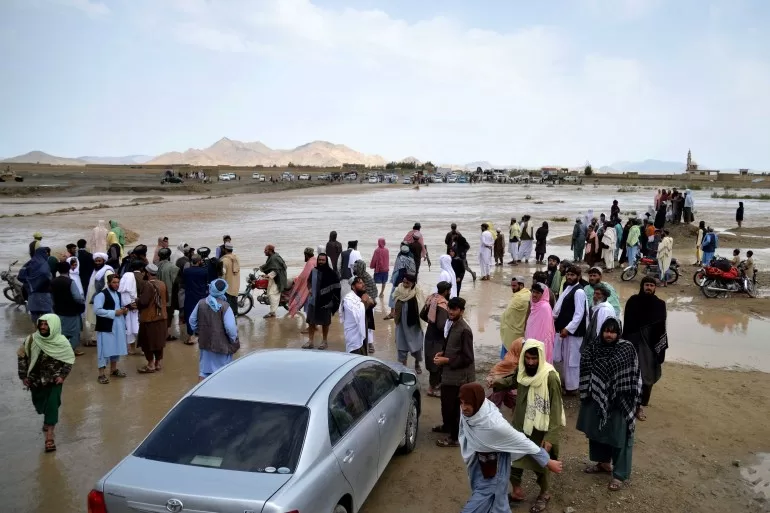Most casualties have been from roof collapses, while some 600 houses have been damaged or destroyed, authorities say.
“From Friday onwards, because of the rains there were flash floods which caused high human and financial losses,” department spokesman Janan Sayeq said on Sunday.
“The primary information shows that, unfortunately, in the floods, 33 people were martyred and 27 people got injured.”
Most casualties were from roof collapses, as some 600 houses were damaged or destroyed. In addition, 200 livestock have perished, nearly 600km (370 miles) of road have been destroyed, and about 800 hectares (1,975 acres) of agricultural land have “flooded away”, the spokesman added.
Twenty of the nation’s 34 provinces were lashed by the heavy rains, which followed an unusually dry winter season that has parched terrain and forced farmers to delay planting.
Western Farah, Herat, southern Zabul and Kandahar are among the provinces that suffered the most damage, Sayeq said.

The authorities have warned that more rain is expected in the coming days in most of Afghanistan’s provinces.
Since the Taliban returned to power in 2021, the flow of foreign aid into the impoverished country has drastically diminished, hindering relief responses to natural disasters.
At least 25 people were killed in a landslide after heavy snowfall in eastern Afghanistan in February, while about 60 were killed in a three-week spate of precipitation ending in March.
The United Nations last year warned that “Afghanistan is experiencing major swings in extreme weather conditions”.
Scientists say harsh weather patterns are being spurred by global warming. After being ravaged by four decades of war, Afghanistan ranks among the nations least prepared to face climate change.
